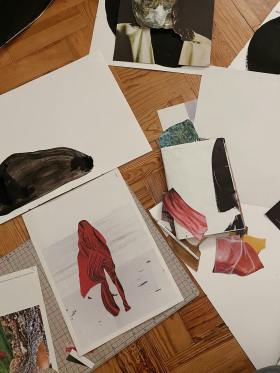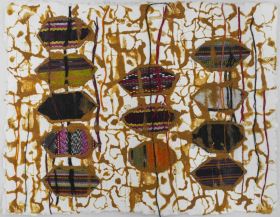It is unfortunate that Clare Boothe Luce`s trenchant view of Thirties New York Anglo-Jewish society never has been translated onto the screen.
The first version of the play, produced by David Selznick and directed by George Cukor (who had just been removed from Gone With the Wind), avoids the assimilation angle altogether, placing the onus instead upon the preoccupation of rich women with cosmetics, clothes and glamour (to the exclusion of marital sex).
This is contrary to Boothe`s thesis; for as she saw it, the assimilated Anglo-Jewish gentry were also sexually impotent and largely bisexual, failing their wives completely in the marital department and forcing them to sublimate their sex drives into clothes, glamour and cosmetics (in the remake cosmetic surgery, and what a gruelling scene!)
The whole point of the `Sylvia Fowler` character (who in the play I believe is not Sylvia but someone who was excised from the film script) is that in Boothe`s play despite her looks and intelligence, she was, age 35 or > whatever, still a `virgin`. And I think this was the first time the word `virgin` was used in a play on Broadway.
In the film the character lost her virginity age 30 and since has had numerous affairs, the latest with the publisher of her magazine: Ned (hopefully not a snide reference to darling Ned Chase) Boothe`s secondary point and the focus of all the movie renditions is the cat fight between Mary Haines (the wife) and Crystal Allen (the manicurist or in the remake perfume salesperson). The play contextualises this rivalry with its diatribe against lower-middle-class types (mainly Irish and Italian) who were stealing the husbands of sedate Anglo-Jewish wives. It was a diatribe not against extra-marital sex (with brainy mistresses) but against the breakdown of a social order by interlopers and asked why those interlopers were actually befriended by
Society chums who wanted to jump on the bandwagon of the new social order?
In the previous two film versions `wifely Mary` was always played by a `good girl` type actress….Norma Shearer and June Allyson. In this version she is played by Meg Ryan who in her own sentiment could get blood out of a stone.
In other words, she`s great in bed! The entire point of the remake seems to adulate gay sex as a panacea for all the petty rivalries and jealousies which for years have plagued women`s relationships with one another.
As a matter of fact, the climax to the film where Debra Messing is spread-eagle in the course of a birth delivery could be construed as a send-up of `enforced sex`. Somehow in this context it just isn`t funny!
Essentially The Women` produced by Mick Jagger (?????) after all the majors passed is an anti-intellectual piece written, directed and shot in the Old Hollywood style. In an age when we have all the mechanics needed to shoot fluid, effervescent cinema, G-d only knows why anyone including Diane English chooses to lumber herself with massive equipment on dollies, etc.
Static, boring, dull cinema. Clare Boothe wouldn`t recognize the piece or for that matter like it very much. I didn`t like it very much either.




